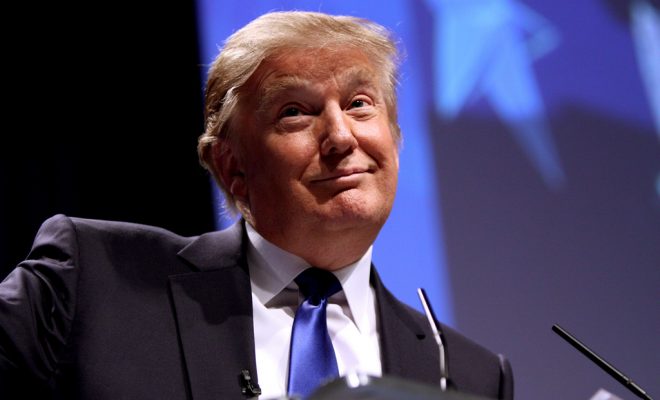 Image Courtesy of Gage Skidmore; License: (CC BY-SA 2.0)
Image Courtesy of Gage Skidmore; License: (CC BY-SA 2.0)
Politics
What Exactly is “Obstruction of Justice”?
Washington was hit with yet another bombshell on Tuesday: according to a memo former FBI Director James Comey wrote in February, President Donald Trump might be guilty of obstructing justice. In the memo, the contents of which were divulged to The New York Times, Comey detailed a closed-door conversation he had with the president a day after he fired National Security Adviser Michael Flynn.
Trump allegedly asked Comey to drop the investigation into Flynn and his contacts with Russia. “I hope you can let this go,” Trump told Comey, according to the memo. The FBI investigation into Flynn is ongoing. Shortly after the news broke, Capital Hill was abuzz with accusations that Trump, in nudging Comey to end a federal investigation, crossed the line. Dozens of Democrats, and some Republicans, suggested Trump’s actions, as described in Comey’s memo, constituted obstruction of justice.
In a Twitter post Tuesday night, after the Times’ report about the Comey memo was published, Sen. Chris Murphy (D-CT) wrote: “Just leaving Senate floor. Lots of chatter from Ds and Rs about the exact definition of ‘obstruction of justice’.” Around the same time, Rep. Ted Deutch (D-FL), tweeted: “Asking FBI to drop an investigation is obstruction of justice. Obstruction of justice is an impeachable offense.”
Two prominent Republican congressmen, Justin Amash of Michigan and Jason Chaffetz of Utah, also expressed concern that Trump obstructed justice. The White House, in a statement on Tuesday, denied Comey and Trump ever had the conversation as described in Comey’s memo. “The president has never asked Mr. Comey or anyone else to end any investigation, including any investigation involving General Flynn,” the White House said.
According to legal analysts, the key to determining whether Trump is guilty of obstruction of justice, and if he could eventually be charged, is determining his intent when he fired Comey.
“There’s definitely a case to be made for obstruction,” former federal prosecutor Barak Cohen told the Washington Post. “But on the other hand you have to realize that–as with any other sort of criminal law–intent is key, and intent here can be difficult to prove.” That is, in asking Comey to end the FBI’s investigation into Flynn, and subsequently firing the director a few months later, did Trump intentionally obstruct an ongoing investigation?
Federal law broadly defines what exactly obstruction of justice means. According to Title 18, the criminal code that deals with federal crimes, it is a crime if a defendant “obstructs, influences or impedes any official proceeding.” But again, proving intent to obstruct would be tricky. Besides, any case against Trump would have to be carried out by his own Justice Department, meaning that consequences seem unlikely.








Comments